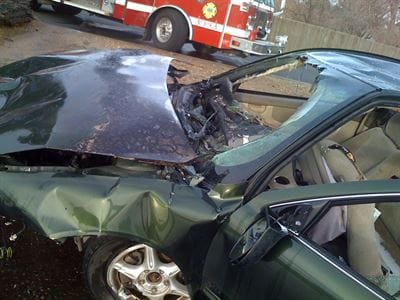
A quirk in Virginia law allows drivers to operate without insurance as long they pay an annual fee. This, along with the ever-present danger of hit-and-run drivers (4,521 cases in 2017), put injured crash victims at risk for bearing all the financial costs of recovering from a wreck.
LEARN MORE
- A Virginia Personal Injury Lawyer Discusses Hit-and-Run Injury Claims
- More Guidance on Uninsured Motorist Coverage in Virginia
Virginia lawmakers partially addressed this unjust reality in 2011 by passing a law that requires every person who does purchase car insurance in the state to carry uninsured motorist coverage. During 2019, the minimums for what is often called UM coverage were
- $20,000 for property damage,
- $25,000 for a bodily injury to or the death of one person, and
- $50,000 for a bodily injury to or the death of two or more people
Who Can Invoke Uninsured Motorist Coverage in Virginia
Uninsured motorist coverage extends to each of the individuals who is covered under the policy, meaning spouses, children and other listed family members have access to UM settlements when an uninsured, unknown or hit-and-run run driver injures them. Cases in which UM coverage can be invoked include, but are not limited to, those in which
- The at-fault driver flees the scene and is never identified;
- More than one driver other than the injured person may have caused the crash, but no clear assignment of fault can be made;
- The at-fault driver has no liability coverage, either because the person paid the fee to operate without insurance or because the person carries no insurance at all; or
- The injured crash victim has no access to the at-fault driver’s insurance because the person who caused the accident is a government employee who was engaged in official duties.
The Way an Uninsured Motorist Claim Works
UM claims go directly to the company that insures the injured and covered individual. Virginia law requires the car insurance company to treat such a claim just as it would if the claim came from a person who was hit and injured by its policyholder. This ensures that the uninsured motorist claim will be taken seriously, but it also allows the insurer to contest the claim.
Before it settles a UM claim, the insurance company will demand
- Proof that the person who submitted the claim did not cause the crash,
- Proof that injuries occurred, and
- Proof that the crash-related injuries required medical treatment that cost the victim money.
Partnering with an experienced Virginia personal injury attorney will help the injured person gather and present all the requested police reports and relevant medical records. My colleagues and I have handled cases in which the insurance company contested UM claims all the way through civil jury trials — moves that required the companies to hire defense attorneys to try to justify denials of coverage to their own policyholders. In such circumstances, a car crash victim will want a staunch legal ally.
EJL








